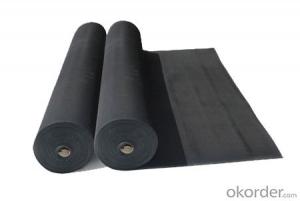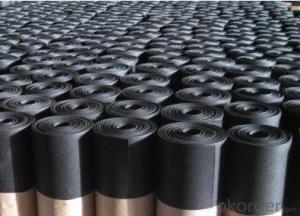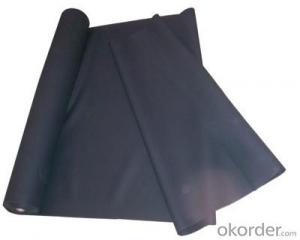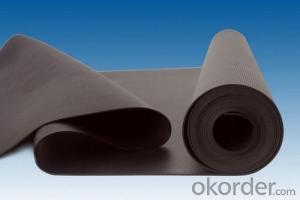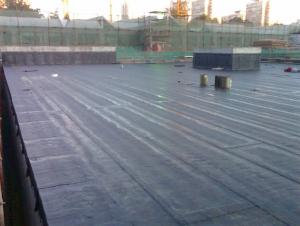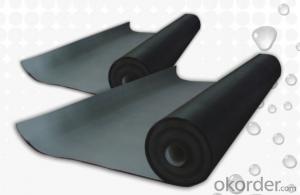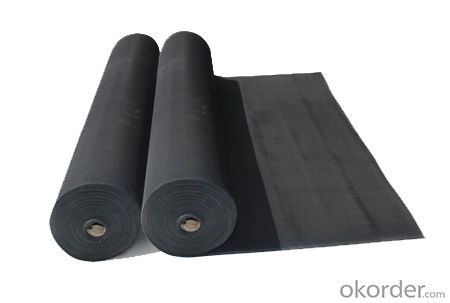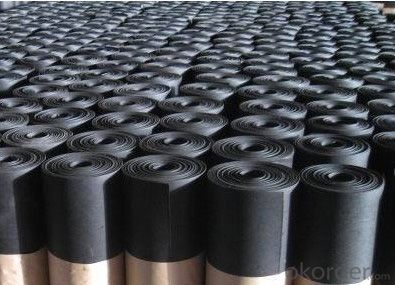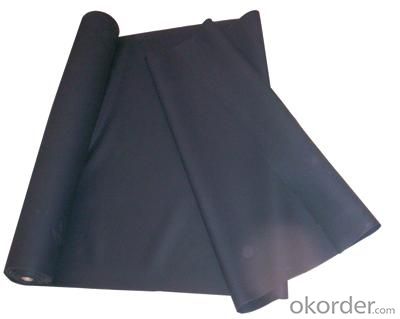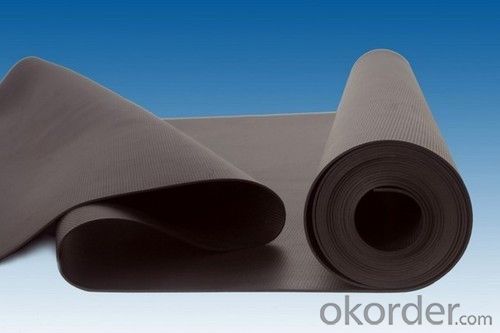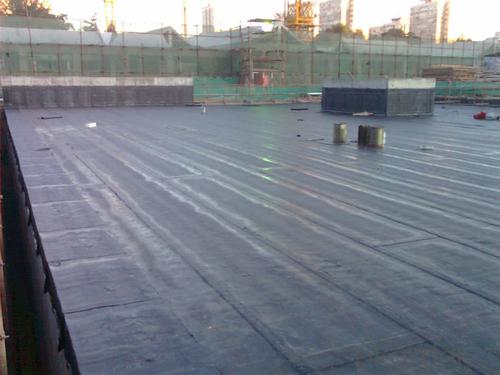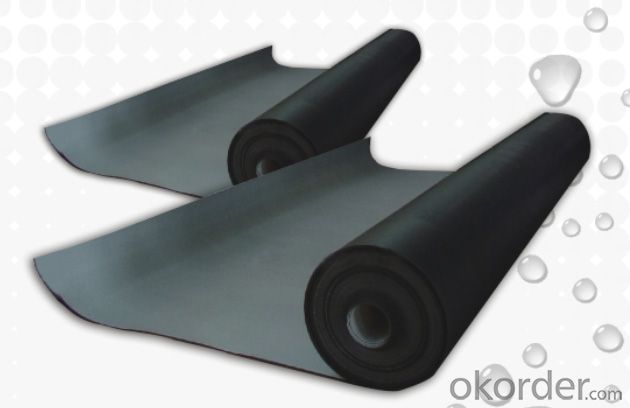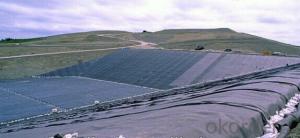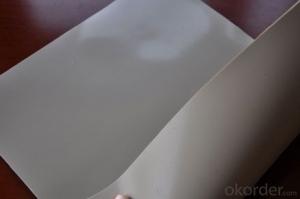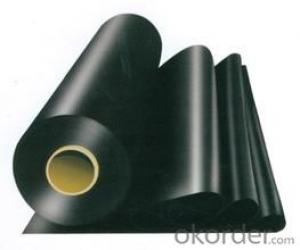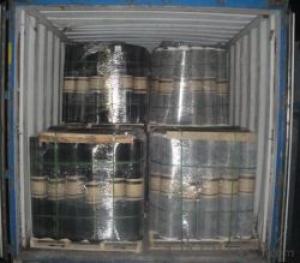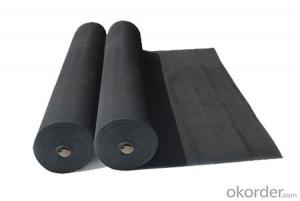EPDM Coiled Rubber Waterproof Membrane with 0.5mm Thickness
- Loading Port:
- Shanghai
- Payment Terms:
- TT OR LC
- Min Order Qty:
- 20000 m²
- Supply Capability:
- 5000000 m²/month
OKorder Service Pledge
OKorder Financial Service
You Might Also Like
EPDM Coiled Rubber Waterproof Membrane with 0.5mm Thickness
Description Of EPDM Coiled Rubber Waterproof Membrane with 0.5mm Thickness:
This waterproof coiled material is of high elasticity with best performance among high polumer
waterproof coiled material in the world.It is also the most typical one in the world.Waterproof coiled material made of ternary ethylene-propylene rubber is produced withthe use of the most advanced contiuous extrusion and vulcanization technology and related equipments which are specially designed for production of such product.It is good in compactness,without bubble and performance difference in length and breadth,perfomances reach or exceedthe demands of GB18173.1-2000 standard.
Main Features of EPDM Coiled Rubber Waterproof Membrane with 0.5mm Thickness:
A.Polyester based SBS Modified Bitumen Waterproofing Membrane
a. Strong impermeability
b. High tensile strength, elongation, ability to adapt the grassroots shrinkage deformation and cracking
c. Puncture-resistant, broken resistant, tear-resistant
d. The corrosion resistance, resistance to mildew, weathering good
e. Construction convenient, hot-melt can be operated Four Seasons Construction, reliable joints
B. Fiberglass based SBS Modified Bitumen Waterproofing Membrane
a. High tensile strength, stability of a good size
b. High Temperature good performance
c. Damage resistance, corrosion resistance, resistance to mildew, weathering good performance
d. Good construction performance, reliable joints.
Specifications of EPDM Coiled Rubber Waterproof Membrane with 0.5mm Thickness:
| Material | EPDM Rubber |
| Size | 1.2m (width)*20m (length) or customized, weldable type 2.05m or 4m width |
| Thick | 1.2mm, 1.5mm, 2.0mm |
| Type | Vulcanized & Weldable |
| Pattern | Non-reinforced (homogeneous) |
| Certificate | ISO9001/14001 |
Applications of EPDM Coiled Rubber Waterproof Membrane with 0.5mm Thickness:
1. Roofs, Basement, Toilet
2. Industrial and civil building waterproofing
3. Geo-synthetic liner for swimming pool, channels, irrigation system
4. Especially suit for projects with high requirements in durability, anti-corrosion and deformation
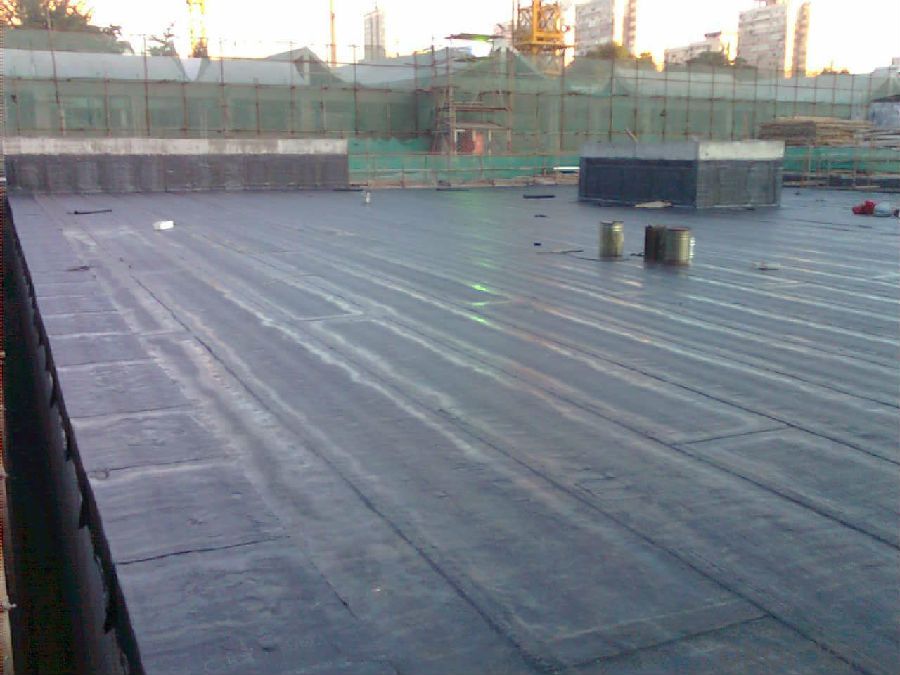
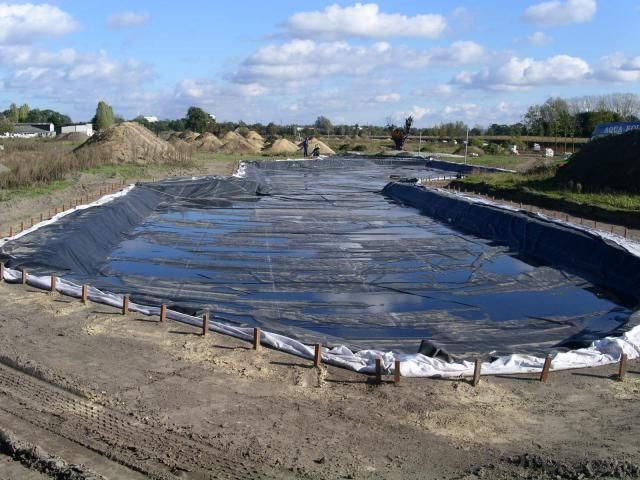
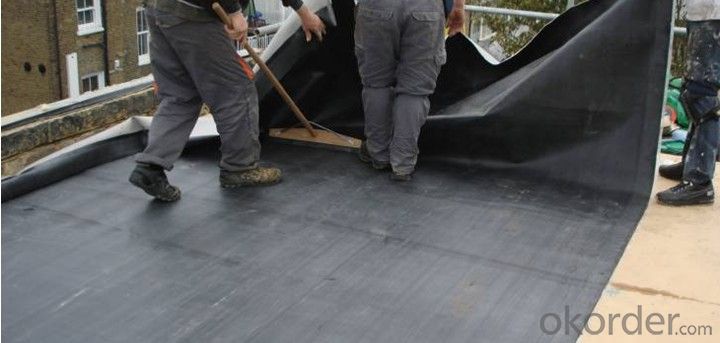
IMages of EPDM Coiled Rubber Waterproof Membrane with 0.5mm Thickness:
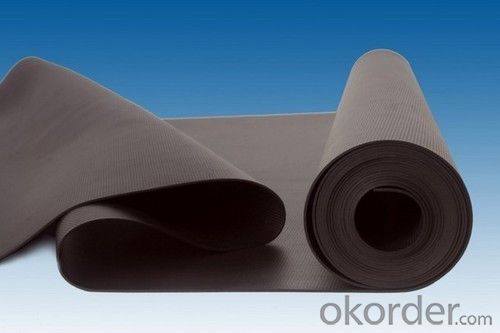
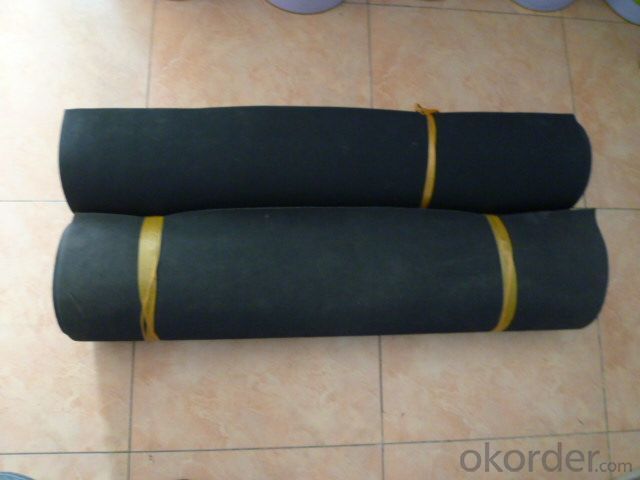
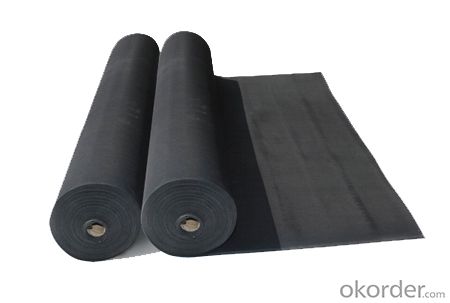
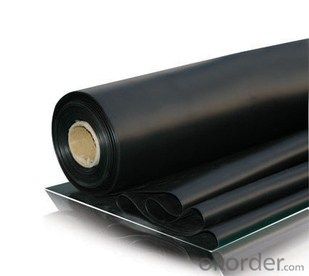
FAQ of EPDM Coiled Rubber Waterproof Membrane with 0.5mm Thickness:
1. What are we supplying?
We are specialized in producing Colorful Asphalt Roof Shingle, SBS/APP modified bitumen waterproof membrane, Self adhesive bitumen waterproof membrane, PVC waterproofing membrane, EPDM rubber roofing membrane, Single Component Polyurethane Waterproof Coating, and Spray Polyurea Waterproof Coating
.
2. How Many years experience do we have?
We have been exported to more than 20 countries in the past 15 years.
3. How long do we usually reply your request?
We always reply our customer within 24 hours.
- Q: Does a waterproofing membrane require any special cleaning or maintenance procedures?
- Special cleaning and maintenance procedures are necessary for a waterproofing membrane. Although it is designed to resist water and other elements, regular maintenance is crucial to ensure its durability and effectiveness. The specific procedures for cleaning and maintenance may vary depending on the type of waterproofing membrane used. However, it is generally advised to keep the membrane clean and free from debris, such as leaves, dirt, or other foreign objects. This can be achieved by sweeping or gently washing the surface with water and, if needed, a mild detergent. Furthermore, it is essential to regularly inspect the membrane for any signs of damage, such as tears, cracks, or loose seams. If any issues are detected, they should be promptly addressed to prevent water infiltration and further harm. In certain cases, the manufacturer or installer of the waterproofing membrane may recommend specialized cleaning products or treatments. It is important to adhere to their guidelines and recommendations to ensure proper care and maintenance for the specific membrane used. Overall, regular cleaning and maintenance of a waterproofing membrane will prolong its lifespan and guarantee its continued effectiveness in safeguarding the underlying structure from water damage.
- Q: Are waterproofing membranes resistant to UV rays?
- Yes, waterproofing membranes are typically designed to be resistant to UV rays. They are formulated with additives and coatings that provide protection against the damaging effects of sunlight and ensure long-term durability and performance.
- Q: Can a waterproofing membrane be used on roofs with skylights?
- Certainly, roofs with skylights can benefit from the use of a waterproofing membrane. It is strongly advised to employ a waterproofing membrane around skylights in order to prevent water infiltration or leakage. Skylights have the potential to become weak points in a roof system, as they form openings that can let water seep through if not adequately sealed. The application of a waterproofing membrane around the skylights serves to establish a watertight barrier that safeguards the roof from any potential leaks. Furthermore, a waterproofing membrane also offers added protection against external factors such as UV rays and changes in temperature, thereby extending the lifespan of both the skylights and the roof itself.
- Q: Are waterproofing membranes resistant to water vapor transmission?
- Yes, waterproofing membranes are designed to be resistant to water vapor transmission. They are specifically engineered to prevent the penetration of water vapor through the membrane, ensuring effective waterproofing and moisture control.
- Q: Can a waterproofing membrane be used for elevator shafts or equipment rooms?
- Yes, a waterproofing membrane can be used for elevator shafts or equipment rooms to prevent water infiltration and protect the structural integrity of the building.
- Q: Can a waterproofing membrane be used on planter boxes?
- Yes, a waterproofing membrane can be used on planter boxes. A waterproofing membrane is typically used to prevent water from seeping through surfaces, and this can be beneficial for planter boxes as it helps to protect the wood or other materials from moisture damage. By applying a waterproofing membrane to the interior of the planter box, it creates a barrier that prevents water from penetrating the material and potentially causing rot or decay. This can extend the lifespan of the planter box and ensure that it remains in good condition for a longer period of time. Additionally, a waterproofing membrane can also help to retain moisture within the planter box, which can be beneficial for the plants or flowers that are being grown. Overall, using a waterproofing membrane on planter boxes can provide added protection and durability.
- Q: Can a waterproofing membrane be used on tunnels?
- Tunnels, being exposed to high moisture levels, groundwater infiltration, and potential leaks, necessitate the use of a waterproofing membrane. This is crucial for safeguarding their long-term structural integrity and preventing water damage. In tunnel construction, waterproofing membranes are widely employed as they effectively prevent water penetration and act as a reliable moisture barrier. These membranes are specifically designed to be durable, flexible, and resistant to different environmental conditions, making them suitable for tunnel application. By applying these membranes to the tunnel walls, roof, and floor, a waterproof seal is created, ensuring the tunnel remains dry and protected against issues such as corrosion, deterioration, and mold growth caused by water. Moreover, the use of waterproofing membranes not only helps reduce maintenance costs but also extends the lifespan of the tunnel infrastructure.
- Q: Why is the top cover of the basement waterproofing? While the floor has to empty shop?
- Basement waterproof construction specification. Basement waterproofing acceptance specification.
- Q: What is the accounting subject of the waterproofing membrane
- Own spare, included in the project materials Waterproof sheet, used for sale, remember inventory goods
- Q: How does a waterproofing membrane handle expansion and contraction of the substrate?
- A waterproofing membrane is designed to handle expansion and contraction of the substrate by being flexible and elastic. When the substrate expands or contracts due to temperature changes or other factors, the waterproofing membrane can stretch or shrink accordingly without undergoing any damage or failure. The membrane's flexibility allows it to adjust to the movements of the underlying substrate, ensuring that it remains intact and fully functional. This flexibility is achieved through the use of materials that have high elongation properties, such as modified bitumen, rubberized asphalt, or synthetic polymers like PVC or TPO. In addition to being flexible, a waterproofing membrane also has a high tensile strength, which enables it to resist tearing or breaking under the stress caused by expansion and contraction. This strength is crucial in preventing any water infiltration or moisture damage to the substrate. Furthermore, the installation of a waterproofing membrane often involves overlapping or interlocking the membrane sheets. These overlapping seams provide additional protection against any potential movement of the substrate. If the substrate expands or contracts, the overlapping seams allow the membrane to accommodate the movement while maintaining a continuous and watertight barrier. Overall, a waterproofing membrane is specifically designed to handle the expansion and contraction of the substrate. Its flexibility, high tensile strength, and overlapping seams ensure that it remains durable, reliable, and effective in preventing water penetration even as the substrate moves.
Send your message to us
EPDM Coiled Rubber Waterproof Membrane with 0.5mm Thickness
- Loading Port:
- Shanghai
- Payment Terms:
- TT OR LC
- Min Order Qty:
- 20000 m²
- Supply Capability:
- 5000000 m²/month
OKorder Service Pledge
OKorder Financial Service
Similar products
Hot products
Hot Searches
Related keywords
